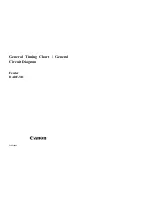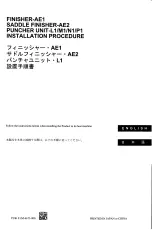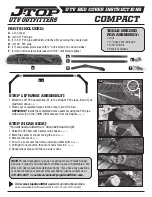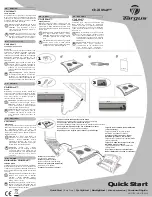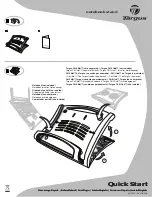
Page 7
RTC CO
2
, Temperature and Humidity Sensor Configuration Guide
Installation
The RCT can be mounted on any surface; glass, stone, concrete,
wallboard, cubicle partitions, etc. The sensor can be mounted using
screws (not supplied) through the removable back plate (2 keyholes
or using double-sided tape or Velcro™ (not supplied).
The mounting location of the wireless transmitter is important, as
this will directly affect the receiver’s reception of the telegrams.
Before installing, refer to following sections in the guide detailing
the installation of wireless devices, layout tips and the test operation
modes.
1. The RCT has a removable back plate.
The back plate has a security feature which
requires a tool for the removal of the device
from the back plate. To remove the back
plate, insert a flat head screw driver, into
the slot and exert torque on the key tab to
separate the back plate from the housing
body as shown in the photos. Once the tab
is free, pull the body away from the back
plate.
2. Mount the back plate to a bracket or
the wall surface in a vertical orientation
with the plastic key on the bottom. There
are keyholes in the back plate that mate
with standard electrical box screw patterns.
Alternatively, you can mount the sensor
using double sided tape or Velcro® (not
supplied).
3. Once the back plate has been secured
to the wall or mounting bracket, align the two top alignment
tabs on the back plate with the enclosure body and press the
lower edge over the plastic key until it clicks in place.






















